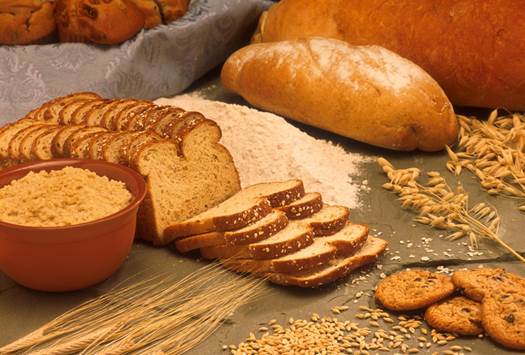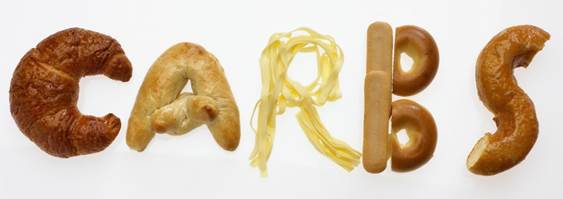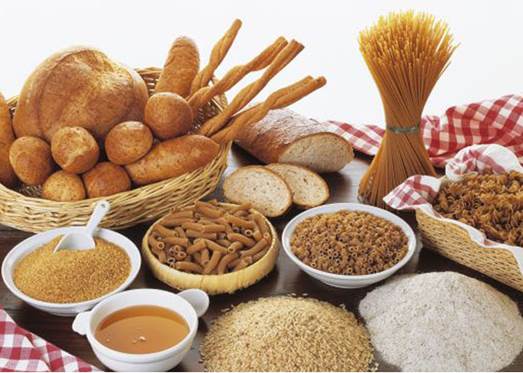How do you make carb cycling work for you?
Some recommend two days of low-carb meals alternated with one high-carb day,
but you could also switch between the two every other day - it’s up to you. The
key is to eat high-carb on the days that you’ve planned to do your toughest
workouts. Aim to have your highest carb meal following your workout so that you
can replenish your glycogen stores - this should help you refuel and feel
energized after a grueling session.
It’s also important to get enough protein,
whether you’re having a low or high-carb day. Try to spread out your protein
intake evenly, throughout all your meals. Protein helps to slow down blood
sugar spikes that could be caused by the carbohydrates you’re eating, but it
also keeps you feel fuller for longer and helps your body to recover from
exercise. ‘Eggs, oily fish like salmon and sardines, beef, chicken and turkey
are all good protein sources,’ says Russell. ‘You can also include some
good-quality protein powders, such as whey protein isolates and brown rice or
hemp protein.’

The
key is to eat high-carb on the days that you’ve planned to do your toughest
workouts.
When your carb intake is low, counter it by
eating plenty of healthy fats. Eating a low-fat diet while you’re restricting
your carb intake will leave you feeling deflated, unsatisfied and hungry. It’s
important to keep your energy levels high, your brain focused and your tummy
full if you want to stick to this plan. ‘Eat good fats like linseeds, avocado,
olive oil, coconut oil, nuts and seeds,’ says Russell. ‘These sources are high
in omega-3 and omega-6 fatty acids and vitamin E, which can help with your
weight loss.’
What carbs to eat, when
Use these sample menus to ace your carb
cycling plan
On Iow-carb days
Breakfast: Eggs with spinach and tomatoes
Morning snack: Handful of almonds
Lunch: Chicken and avocado salad
Afternoon snack: Carrot sticks and houmous
Dinner Grilled salmon with steamed veg
Non-starchy veg are high in fiber as well as
having high levels of vitamins and minerals, so they’re a great way to control
your appetite. Stock up on broccoli, cauliflower, carrots, spinach, lettuce,
tomatoes, cucumber, avocado and beetroot.
Avoid sugary and low-fat snacks - the high
sugar content encourages excess insulin release.

Avoid
sugary and low-fat snacks - the high sugar content encourages excess insulin
release.
On high-carb days
Breakfast: Porridge with nuts and seeds or
whole meal toast with avocado and tomato
Morning snack: Handful of raspberries
Lunch: Thai green curry with brown rice
Afternoon snack: Sliced banana with a
dollop of nut butter Dinner: Homemade beef burger on a whole meal bun with
salad and sweet potato fries
Low-GI foods release their energy slowly,
avoiding a blood sugar spike that leads to weight gain. Fuel up on sweet
potato, squash, whole grains (think brown rice, bread and pasta), quinoa and
oats.
Small amounts of fresh berries area good
snack option.
Carb cycling 101
Use Russell’s top tips to make carbs work
for you
Be aware of the change
You may experience some headaches or
moodiness when switching to carb cycling as your body gets used to using fats
and proteins as a fuel instead of carbs. This doesn’t mean it’s dangerous,
there’s simply an adjustment in metabolism taking place.
Get even
Aim for an even number of low-carb and
high-carb days suited to your training regime. This might even call for
medium-carb days. To work out the amount of carbohydrates in grams you should
eat, use this formula: for low-carb days 0.6g x body weight in pounds; on
high-carbdays:1.4g x body weight in pounds.

Aim
for an even number of low-carb and high-carb days suited to your training
regime.
Plan ahead
Make sure you have snacks on hand to avoid
getting stuck somewhere without any healthy food choices around. If you know
you’ll be without good food for a while, a fiber supplement such as Psyllium Husks
(1 tablespoon in a large glass of water) can help you resist temptation.
Cheat it
Having a ‘cheat day’ where you forget your
carb cycling plan once every week or so is a good way to keep your body
guessing. Schedule it on days of intense activity to offset the damage.